In a move that signals a major leap forward in generative AI, OpenAI has quietly rolled out ChatGPT-5, its most advanced model to date….
Are these SA’s 11 biggest disclosed VC deals in 2019? [Updated]
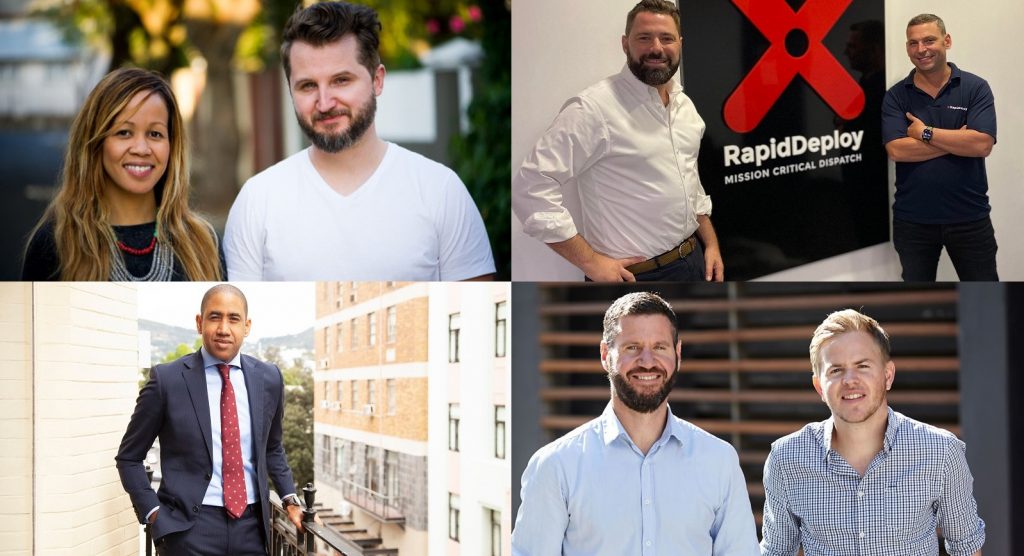
UPDATE (20 and 23 December): This article was updated to correctly state that SweepSouth’s R30-million raise from Naspers Foundry was part of a R60-million round closed in October. We have also removed the R500k Vollar deal which was actually announced in December 2018. We have adjusted the total funding figures to correctly reflect this.
SA tech startups this year scored over R673-million in venture capital (VC) investments, reveal new figures compiled by Ventureburn on the number of disclosed VC deals. The 11 biggest deals raised R555-million in all.
Ventureburn’s calculations relate to only those SA deals that have been disclosed and that were concluded by companies founded in the last seven years and based on the African continent (see this story for the top VC deals in Africa in 2019).
In total SA tech startups raised over $47.4-million (over R673-million as of current rates) through 30 deals.
The first half of the year saw a considerably higher amount invested in SA tech startups. In all between January and June, R507.6-million was invested in 17 disclosed deals (see this story) — compared to R165.9-million that went to SA tech startups in 13 deals between July and December this year.
SA tech startups raised over R674-million through 31 deals in 2019
This year’s figure is significantly lower than in 2018 when SA tech startups raised over a R1-billion or over $89.3-million, in disclosed deals.
However, the 2018 figure was distorted by JUMO’s $52-million and $12.5-million deals and Yoco’s $16-million deal (see this story). If one removes these, the amount in disclosed VC deals more or less doubled from 2018.
The figure for 2019 however could well be a lot higher, as Ventureburn didn’t include figures for 15 deals which we reported on where the investment amounts were not disclosed (see the list of those deals, at the foot of this story).
Fintech still remains one of the hottest verticals in the country’s tech startup sector. In 2019 fintech (including crypto and insurtech) accounted for about a third of the value of investment, at R269.4-million invested in 13 disclosed deals.
Here then are perhaps SA’s biggest 11 tech startup deals in 2019 (for the 12 we used the dollar-rand exchange rate at the time the deal was announced — which is why the figure below sums to R555-million — Ed):
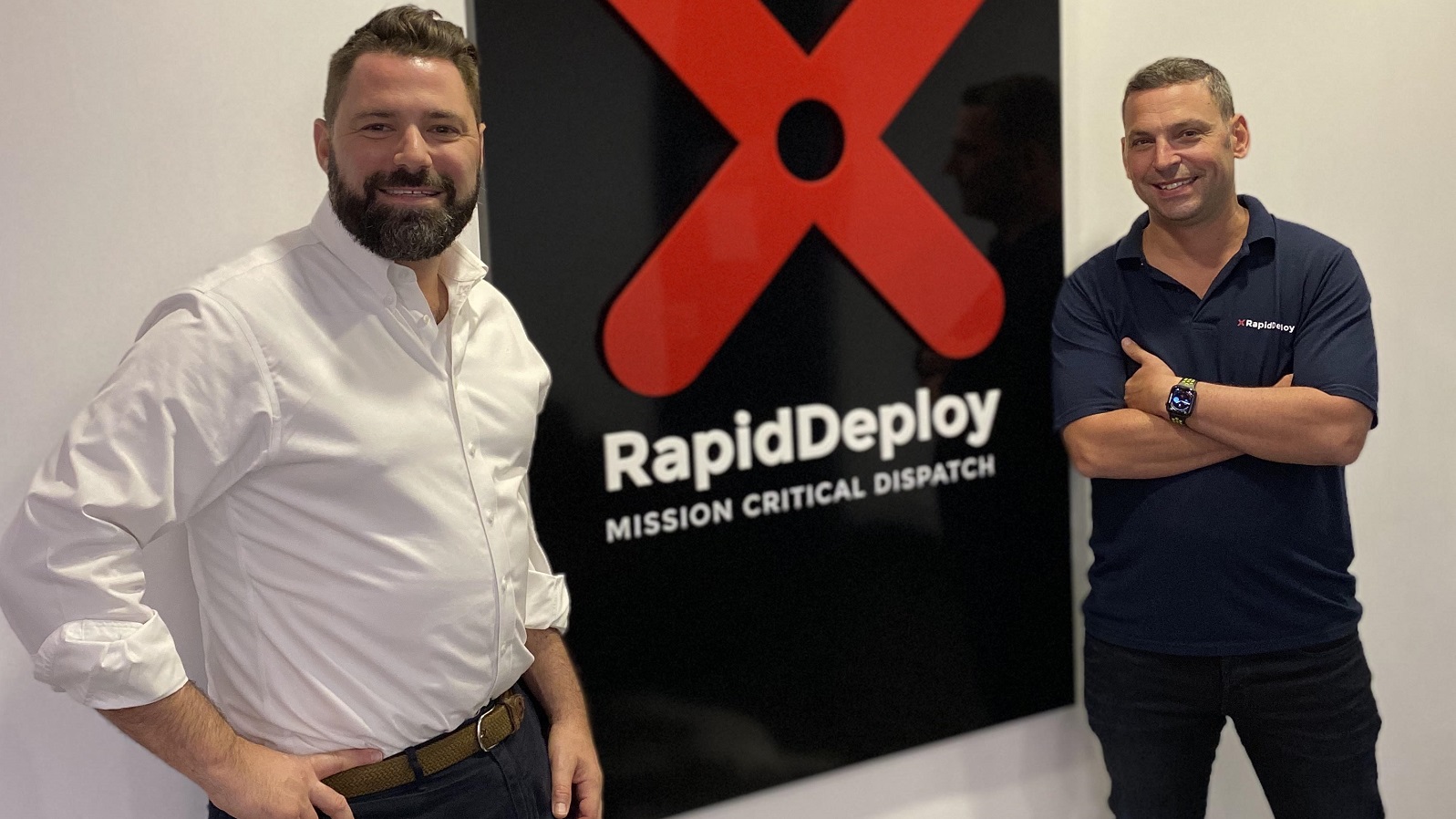
RapidDeploy (R167m)
SA tech startup RapidDeploy announced in February that it had raised $12-million (about R167-million at the time) in a Series-A round from US venture capital fund GreatPoint Ventures and innovation fund Samsung Next (see this story). The startup did not reveal the stake that the two have taken in the company.
The funding will help the startup — which in January opened a new head office in the US (see this story) — to accelerate the development and deployment of its cloud aided platform, which enables public safety officials to reduce emergency response times and improve situational awareness.
The startup was founded by Brett Meyerowitz (pictured above, right) in 2014. He was later joined by fellow founder Steven Raucher (above left) who is now the CEO, in 2016.
This year proved quite a year for the startup. It opened a US office and also prepared to move to a bigger location in Cape Town (see here and here). It now employs almost 100 people – 62 in Cape Town and 35 in Austin, in the US.
Earlier this month Raucher said the startup is looking to double its Cape Town staff numbers to 120 by the end of this year. Last month Microsoft CEO Satya Nadella described at the Microsoft Ignite conference in Orlando, Florida (see this video clip) how RapidDeploy protects public safety and prevents ransomware attacks.

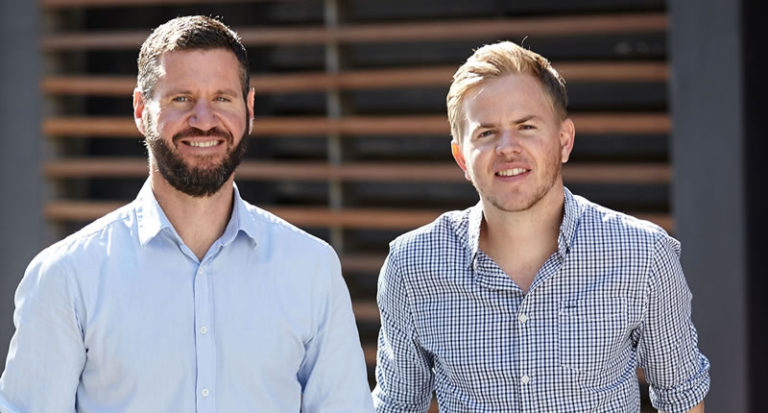
Lulalend (R90m)
Cape Town based fintech startup Lulalend revealed in June that it had closed a $6.5-million (R90-million at the time) Series-A round led by the World Bank’s IFCand Quona Capital (see this story).
The startup, which was founded in 2014 by CTO Neil Welman and CEO Trevor Gosling (pictured above, left and right, respectively), provides short-term loans to small businesses via an online platform (it typically lends out R150 000 over a six-month term period).
The startup has had access to over R150-million in debt funding since launching in 2014 and is on track to access another R500-million off the back of the startup’s latest equity raise Gosling said in July (see this story).
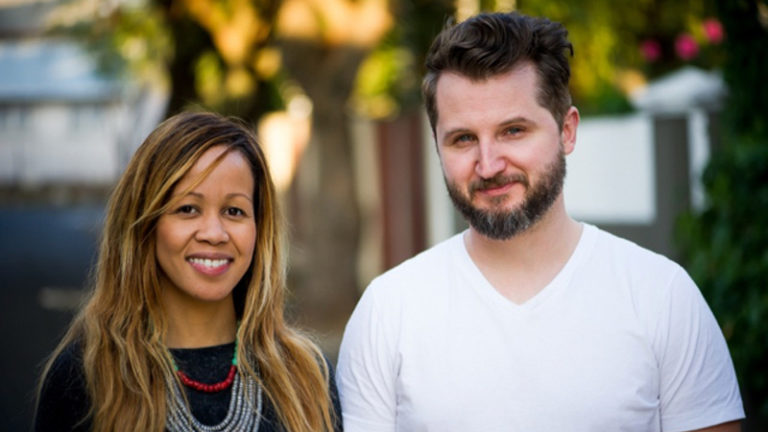
SweepSouth (R60m)
Cape Town based on-demand domestic cleaning service SweepSouth, which was founded in 2014 by Aisha Pandor (pictured above) and Alen Ribic, announced in October that it raised more than R50-million in its latest funding round (see this story).
Pandor confirmed with Ventureburn today that the round was in fact over R60-million and included a R30-million investment from Naspers’s R1.4-billion venture capital (VC) fund Naspers Foundry, which was announced in June (see this story).
Investors in the over R60-million round included the Michael & Susan Dell Foundation which invested $1-million (R14.5-million) in the company.
The startup said in a statement at the time that Smollan, Vumela, CRE VC (previously Africa Angels Network) and musician and venture capitalist Black Coffee had also participated in the round.
SweepSouth also said early investors Newtown Partners had exited the startup in the round with more than 10x return on their investment.
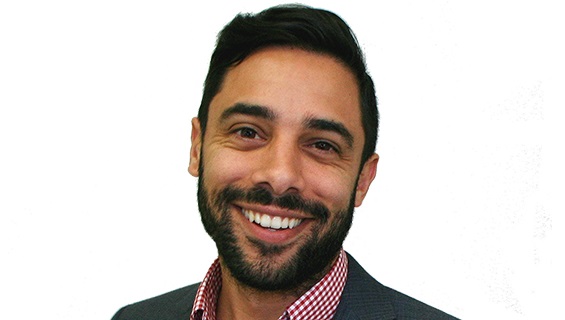
Nomanini (R57m)
Cape Town based fintech company Nomanini in August announced that it had netted $4-million (about R57-million) in an investment round led by Standard Bank, with participation from Amsterdam-based investment firm Goodwell Investments (see this story).
Both investors have taken an undisclosed stake in the company.
Nomanini, which was founded in 2010 by Vahid Monadjem (pictured above) who serves as the company’s CEO, connects informal merchants with distributors via an e-wallet and physical device. Merchants can use the same device to offer basic banking services to their communities.
The fintech company said at the time that by investing in the company, Standard Bank will be able to use Nomanini’s platform to collect data on the informal retail economy.
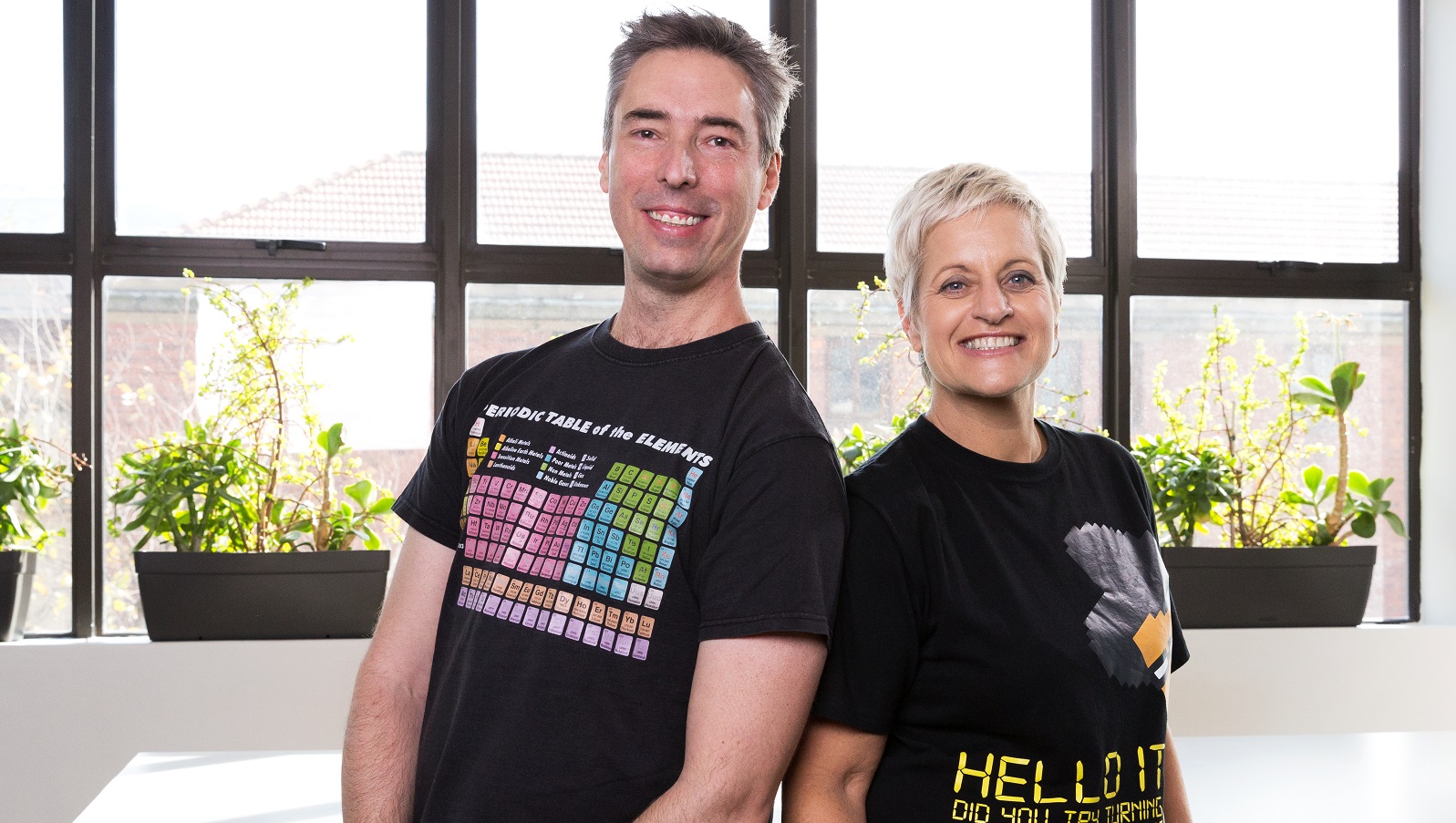
3X4 Genetics (R36m)
The SA founders of biotech startup 3X4 Genetics this year landed $2.5-million in investment from US venture capital (VC) fund Alethea Capital Management (see this story).
Founded by Jason Haddock, the former CTO of Cape Town animation studio Sea Monster, and scientist Yael Joffe (pictured above, left and right, respectively) in 2017, the startup offers genetic tests to patients via a network of health practitioners.
Haddock told Ventureburn earlier this month that while the deal is for $2.5-million, the startup has the option to access an additional $2.5-million at a later stage.
As part of the agreement with San Diego based Alethea Capital’s Tony Hsu, 3X4 Genetics has had to move its intellectual property (IP) and the company itself, to the US. The company will now be based in Seattle, with the Cape Town based business becoming a subsidiary of the US company.
In 2017 the two pitched at genetics company Illumina’s accelerator. The startup subsequently netted an investment of R4.8-million from Earthchild founder Jared Kahn.
Haddock says what differentiates the startup’s genetics test from those of competitors is that the test results focus significantly on what nutrition a patient can look at to improve their health.
In addition, results are packaged in a way so as to make it more useful for a patient looking to tackle a health issue, while bringing the patient and practitioner closer together. For instance, the genetics test results will detail things such how well your body processes toxins, or the health of one’s heart or brain.
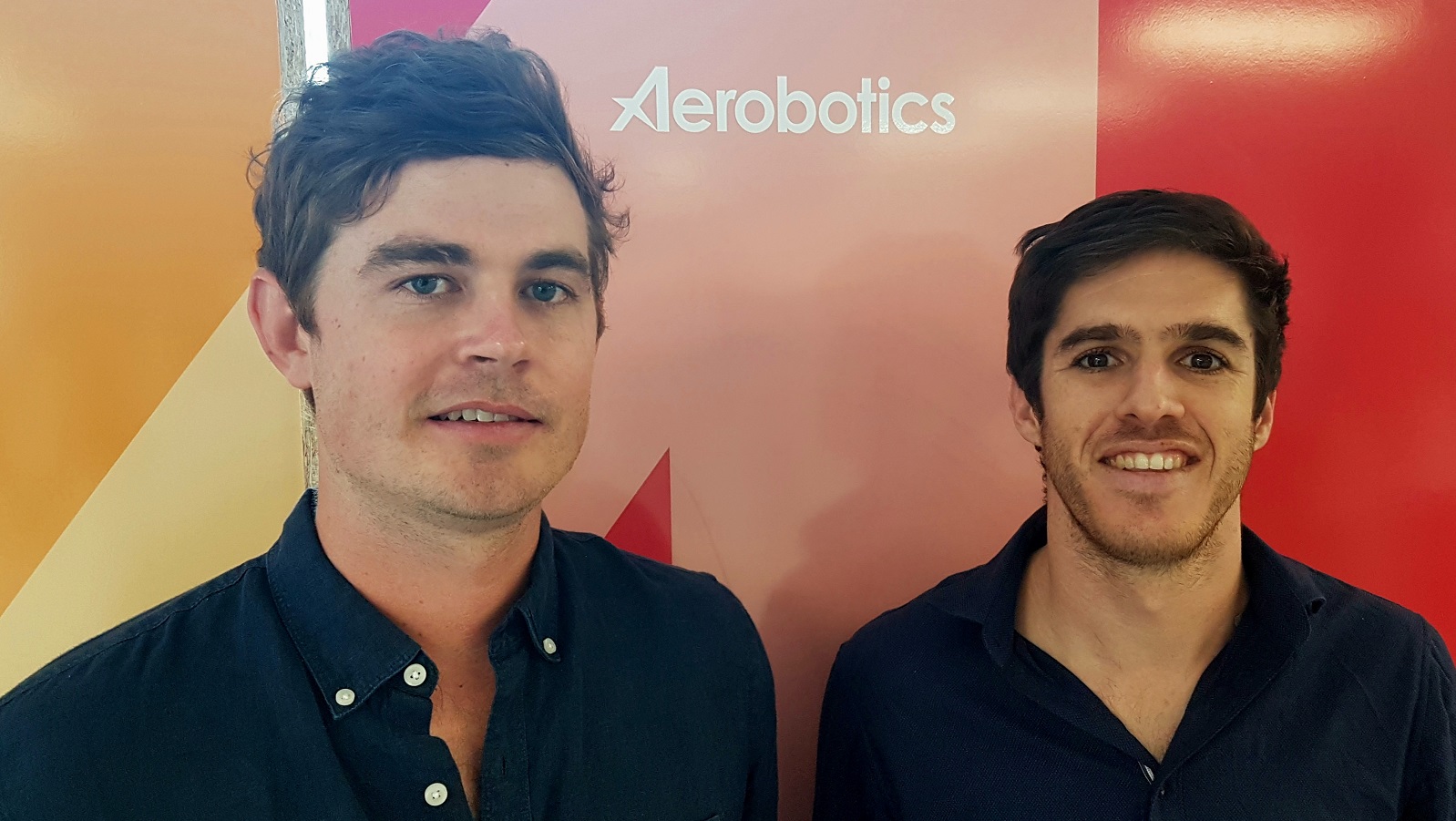
Aerobotics (R29m)
SA aerial-data analytics startup Aerobotics in February announced that it had received R29-million ($2-million) from local venture capital (VC) company Paper Plane Ventures in its latest round of funding (see this story).
Aerobotics’ various software products help farmers – by way of a web-based and artificial-intelligence (AI) enabled web platform and app – to scout and find areas of their vineyards of orchards that are underperforming because of pests or other problems.
The Cape Town based startup was founded by James Paterson and Benji Meltzer (pictured above, left and right, respectively) in 2014.
The latest funding follows a $2-million round led by Nedbank in May last year (the deal was announced in July 2018 — see here) and an R8-million round in 2017 from SA VC 4Di Capital and the Savannah Fund in Kenya (see this story).
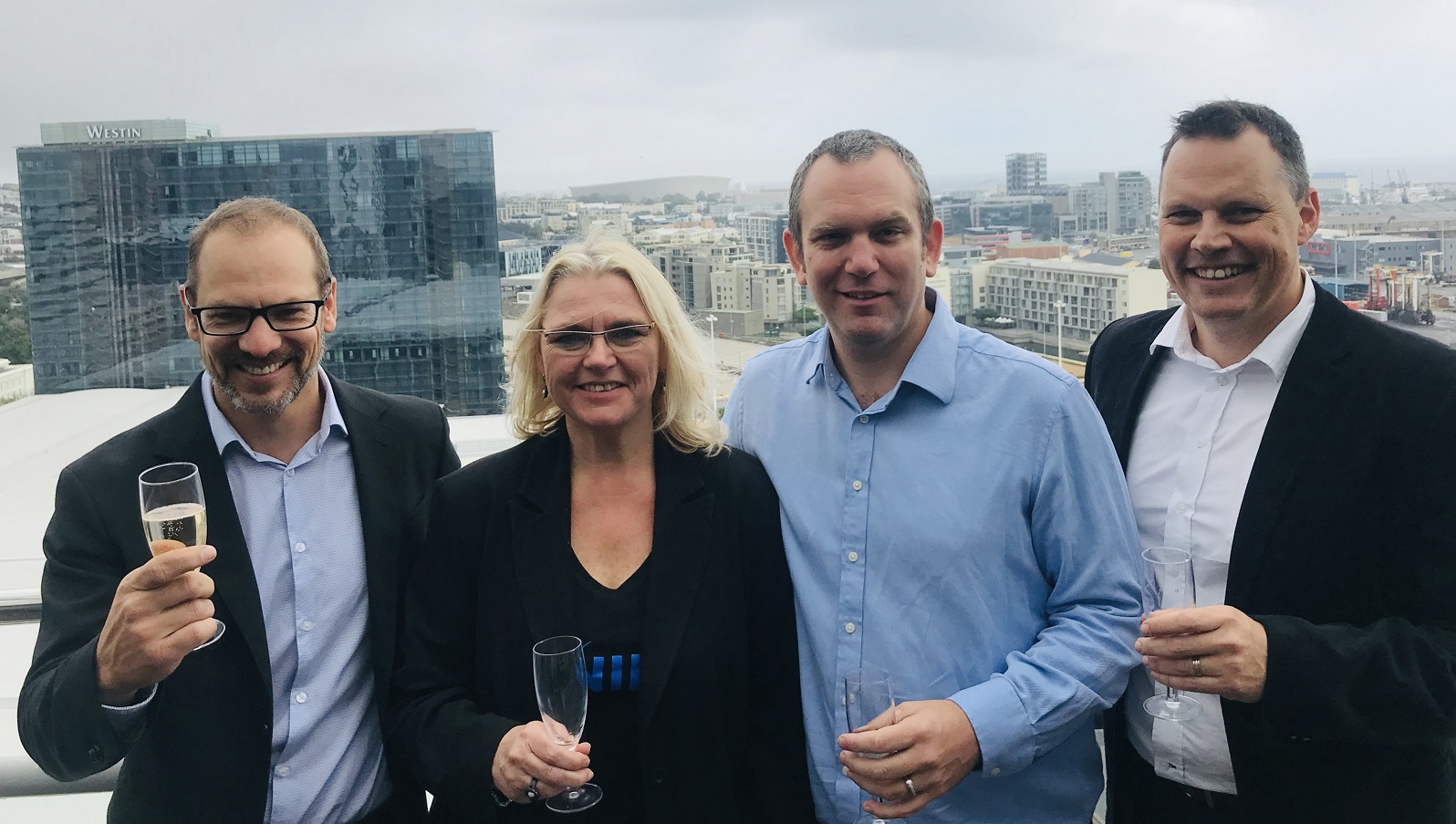
Snapplify (R29m)
Cape Town edtech company Snapplify announced in September that it had raised $2-million (over R29-million) in expansion capital (see this story).
The money was raised from two SA funds — venture capital firm Knife Capital via its SA Revenue Service (Sars) Section 12J Venture Capital Company, KNF Ventures, and black empowerment investment manager Hlayisani Capital’s Hlayisani Growth Fund.
At the time Knife Capital said the investment will accelerate Snapplify’s international expansion initiatives and advance its data analytics capabilities to enhance classroom teaching effectiveness.
Snapplify, which was founded in 2011 by Wesley Lynch (pictured above, second from right), offers elearning solutions to over 1400 schools, colleges and universities that are striving towards digital learning and the use of ebooks in the classroom.

Inclusivity Solutions (R21m)
Cape Town based insurtech startup Inclusivity Solutions in June announced that it had raised $1.56-million in a Series-A round led by Amsterdam-based impact investment and advisory firm Goodwell Investments.
Goodwell Investments, which made the investment through its €100-million Sub-Sahara Africa focused uMunthu Fund, said in a statement that Allan Gray, RGAx (a subsidiary of Reinsurance Group of America) and other angel investors, it did not name, participated in the round.
The startup was founded in 2015 by CEO Jeremy Leach (pictured above). It designs, builds and operates inclusive digital insurance solutions (see this story).
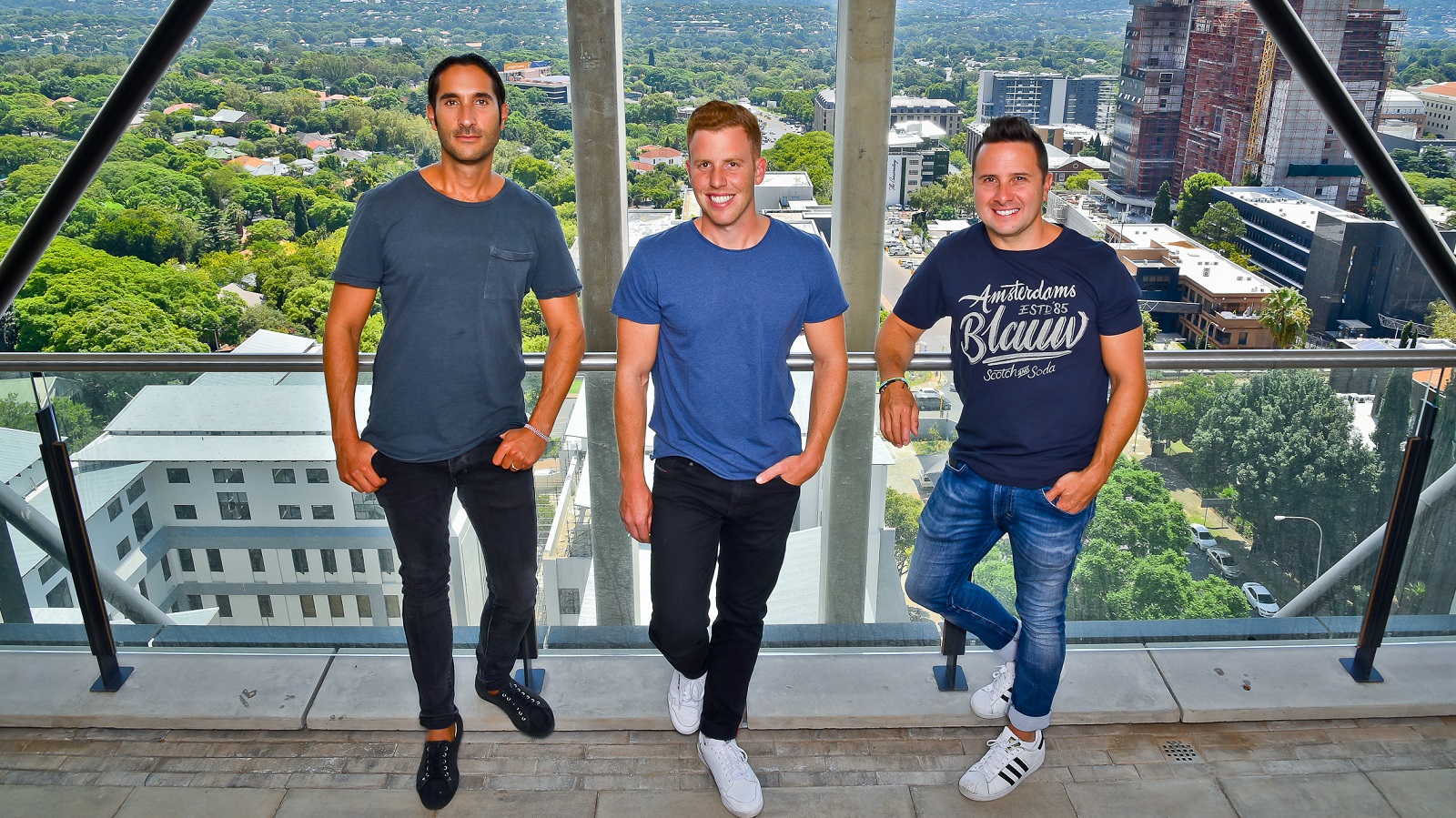
Flow (R20m)
In January, Johannesburg based proptech startup Flow announced that it had raised R20-million, from Kalon Venture Partners and an undisclosed US venture capital (VC) fund.
At the time Kalon Venture Partners CEO Clive Butkow said there was no conflict of interest in the deal that his VC company participated in. This, despite Flow CEO Gil Sperling being a board member of Butkow’s VC fund (see this story).
Flow’s app allows tenants to get rewarded for things such as paying their rent on time and looking after their homes. Tenants get points every month that they can then use to access rewards from providers such as Superbalist, Weylandts, SweepSouth, OneCart, plus a selection of airtime and electricity providers.
The startup was founded by Sperling (pictured above, middle) Daniel Levy (above, right) and Jonathan Liebmann (above, left) in 2017.
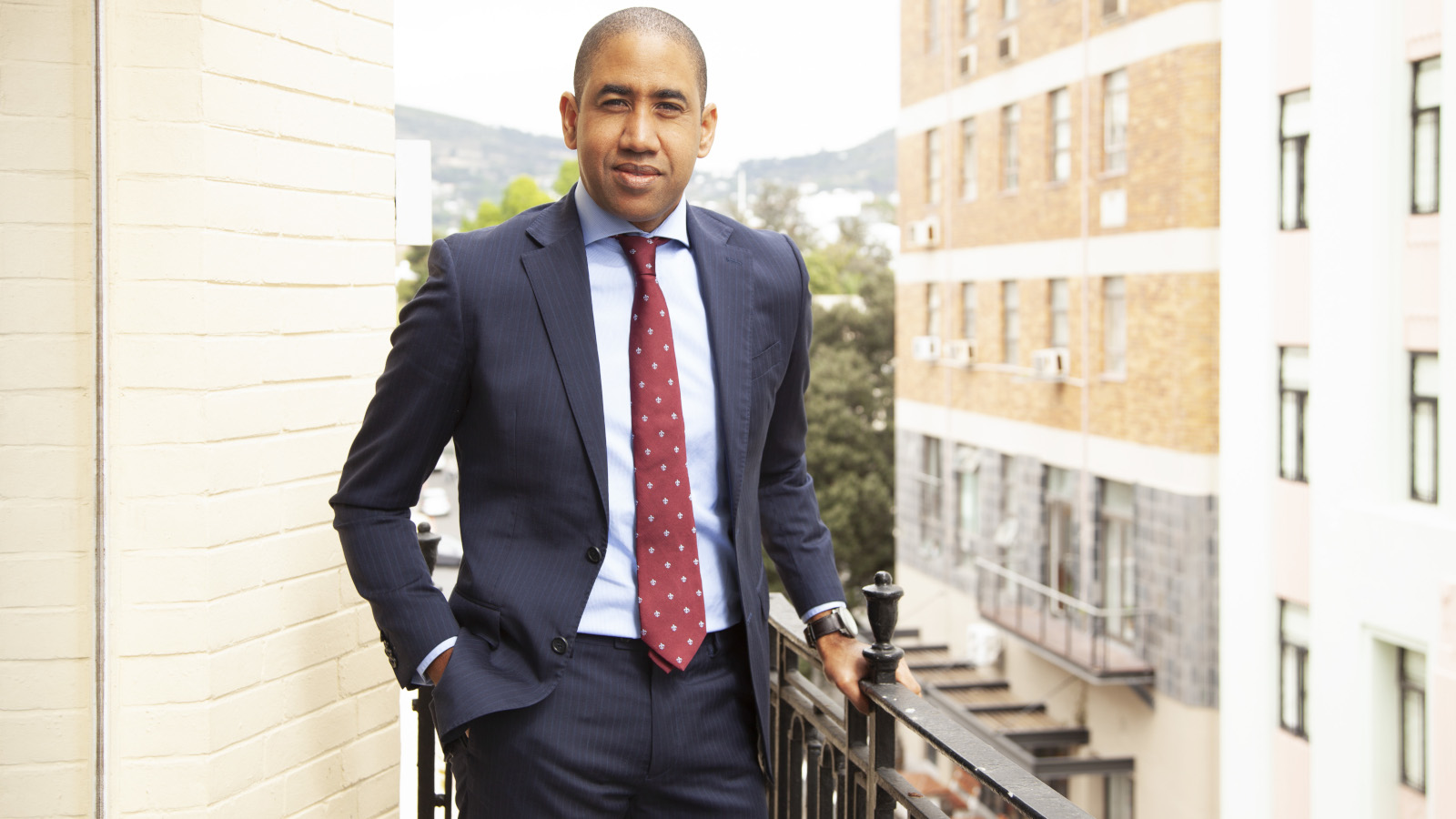
GovChat (R20m)
Pretoria-based citizen engagement platform GovChat in May said it had secured an investment facility from JSE-listed firm Capital Appreciation, that will allow the start to tap up to R20-million in funding from the listed company (see this story).
GovChat said the Capital Appreciation, which invests in fintech businesses, made the investment through its enterprise development fund — which in terms of the BEE scorecard allows companies that lend to black-owned or black-empowered firms to score BEE points.
GovChat was founded in 2016 and launched last year by CEO Eldrid Jordaan (pictured above). Just under 500 000 South Africans currently use the platform.

Centbee (R18m)
Johannesburg-based Bitcoin SV (BSV) wallet and merchant payment startup Centbee in April announced that it had raised £1-million from Ayra Ventures founder Calvin Ayre (see this story).
Centbee was founded in 2017 by co-CEOs Angus Brown and Lorien Gamaroff (pictured above, left to right). Gamaroff is a leading expert in blockchain tech and cryptocurrencies, while Brown — the former CEO of eBucks.com — has 20 years’ experience in payments and banking.
The deal was facilitated by blockchain advisory, research and development firm nChain which last year in January took an equity stake in Centbee. The size of that deal was not disclosed.
All the other SA deals
The 19 other disclosed deals were:
FlexClub (fintech): R17.3m
Coindirect (crypto investment): R15.8m
DigsConnect (proptech): R12m
Revix (crypto investment): R11m
Yellow (pay-as-you-go solar-power devices): R10.5m
InvestSure (insurtech): R9.6m
SmartBlade (medtech) R9.5m
Healthcent (healthtech) R8m
uKheshe (fintech): R7m
Intergreatme (regtech): R6m
The Sun Exchange (fintech): R4.2m
Fincheck (fintech): R4.4m
The Sun Exchange (fintech): R3.6m)
GotBot (AI): R2.5m
Fancam (photo platform): R1.4m
PocketJam (blockchain): R1.1m
DentX (repair platform): R1m)
Digemy (HR platform): R1m)
Bulrush Agritech (agritech): R250k
Those deals 15 that were not undisclosed include: My-iMali, Khula, Solvency, Droppa, Nobuntu, Ozow, Guidepost, Payabill, Ovex, Sentian, Yebo Fresh, SnapnSave, HouseMe, Jonga and Green Machine.
Read more: Are these the 10 biggest deals by African tech startups in 2019?
Read more: Are these SA’s 10 biggest disclosed VC deals so far in 2019? [Updated]
Read more: Fintech accounts for over a third of SA tech startup investments in 2019 so far
Read more: Are these the biggest disclosed VC deals in 2018 involving SA tech startups?
Read more: Are these the 10 biggest disclosed African tech startup deals of 2018? [Updated]

